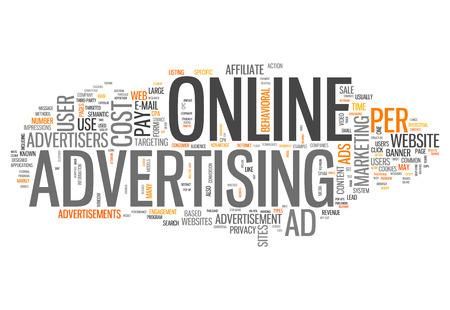Should you bid on a competitor brand – Online Advertising
First Off, Is This Legal?
Let’s go ahead and nip this in the bud right away — yes, bidding on competitors’ brand names and keywords in your pay-per-click campaigns is perfectly legal. Google (and Google Ads) has no rules or regulations that prevent an advertiser from bidding on their competitors’ brand names.
Are There Any Stipulations To Be Aware Of?
While it’s legal to bid on these competitor brand keywords, there are certain situations that could be deemed problematic within the account if the campaign is not properly set up.
The one key element to watch out for when bidding on competitor search terms is to never include the competitor’s brand/company in your ad copy. Since competing companies are registered as official businesses under their unique brand names, Google restricts the use of any trademarked names within any form of ad copy.
But as long as you are abiding by the other advertising laws in your market, there should be absolutely no legal restrictions on bidding on your competitors’ brand names and search terms.
How Can I Prevent Competitors From Bidding On My Brand?
As previously stated, if a competitor or any other advertiser is bidding on your company’s branded search terms but not specifically utilizing your trademarked company name in their ad copy, they are not impeaching on any of Google’s regulations or guidelines.
However, there are several strategies you may deploy to ensure that this process is more difficult for them.
Submit a Complaint Form to Google
If your competitor or any other advertiser is bidding on your branded search terms with your company name in the ad copy, you may want to consider filing a formal complaint to Google to have it take action.
Again, since this goes against Google’s advertising guidelines, it will not approve your competitors’ ads, requiring them to adjust their ad copy.
Once your company’s brand name is no longer found in its PPC ads, this will cause its quality score to decrease. At the same time, the average cost-per-click becomes more expensive as you and other competitors drive up the cost of these search terms.
The reason why their quality score would decrease is that your quality score is a metric that is measured by the relevancy of your keywords to your ad copy, as well as to your landing pages, along with the expected clickthrough rate (CTR) for your search terms.
Since your competitors’ PPC ads and landing pages don’t closely relate to your specific company name they are bidding on, their quality score would be considerably lower than yours and, therefore, rank lower than yours in Google Ads results.
Bid On Your Own Brand Name Instead
One of the easiest tactics to enforce a more difficult campaign for your competitors is to not only bid on your own branded search terms but also to set your branded search term bids high.
There are numerous reasons to bid on your own branded search terms:
- You control the exact messaging that a user sees when they search for you. Relying specifically on organic results means the message a user sees could be whichever organic description Google chooses, not necessarily what you want to advertise to them. In some circumstances, it could take months for your SEO campaign to generate higher rankings on Google. With PPC ads, you have the ability to get your message out at the right time based on the users’ search queries. Along with this, Google Ads and Microsoft Ads also allow you to include unique value propositions directly in your ad copy by utilizing extensions that could not only provide value to user’s searching your business but also help by increasing your clickthrough rate.
- You have the ability to build better content and marketing strategies. PPC campaigns provide a high level of dexterity that other networks don’t. Avoid wasted marketing budget on truck wraps and billboards with a slogan that your audience doesn’t care about. De-risk your approach by testing messaging and strategies to see what will resonate with your audience before investing time and resources into your site, merchandise, events, or other marketing channels.
- It allows you to control how your business appears on SERPs (search engine results pages). It’s important to remember that even if your website ranks number one organically, there are numerous other options for users to click on Google’s search results. In order to properly secure more online real estate, it’s recommended that you advertise your brand through PPC to ensure you are at the top of your search engine for every search query that involves your business name.
Just to reiterate: Bidding on your own branded search terms will cause some discomfort to the competitors that had the same idea.
Again, because your company-branded search terms closely relate (hopefully) to your landing pages and ad copy, your quality score would be much higher than that of your competitors.
With the higher quality score, you have the upper hand in terms of where you will show up on the search engine results page (at the top), and you will be able to control the cost-per-clicks that your competitors are bidding on, making them more expensive and discouraging your competitors from bidding on them.
Bidding On Your Competitor’s Brand: Pros and Cons
Before you begin bidding on your competitor’s branded search terms, there are a few pros and cons to this practice that you may want to be aware of.
Pros
- Less competition: Since bidding on competitor search terms is a less commonly used practice within PPC, there is also going to be less competition among these search terms. When there is less competition, there are fewer businesses and advertising agencies to bid on these search terms, making them more affordable than searches like “painter near me.” Since these bids are much more affordable, it puts you in the position to increase qualified leads at a much better cost-per-lead.
- Improves your brand awareness: Although you are bidding on search terms for a company that users have intent on researching or consuming, your own branded ad copy is what’s displayed on the search network. This is a good tool to not only promote your brand for similar products and services but also promote any competitive advantage that you may hold.
- Common services/products sold between you: If you are bidding on competitor’s search terms, it’s most likely because you have similar products and services as this specific company. They’re your competitor for a reason! So, when bidding on these keywords, this can suggest to your consumers that your website will include information closely related to that of the business we are bidding on. Because of this, not only are you able to capture some of your competitors’ leads, but you can also capture them at a much lower cost than bidding on specific service-line search terms, like the plumber near me example above.
Cons
- Chances of starting a bidding war: One downside to bidding on a competitor’s branded search terms is that you are basically initiating a bidding war. You are essentially extending an open invite to your competition to bid on your brand name and start poaching some of your potential leads. While you bidding on their branded search terms will make it more expensive for them to bid on their own company, the same is true for you. Your competitor bidding on your brand name makes it more expensive for you to convert a searcher into a lead when specifically looking for your business.
- Low clickthrough rate: When a consumer searches for a brand/company online, odds are they have already decided on buying from that source. This means that not many users will be clicking on your ads, causing a low clickthrough rate. While this may not seem bad given that you aren’t paying when they don’t click on your ads, low CTR can actually cause your quality score to decrease, which, in turn, will make it more expensive for your ad to show. In a way, you still pay when someone doesn’t click on your ad.
- Low impression share and quality score: Because impression share is affected by your quality score, having a low quality score has a direct impact on how often your ads are shown within the SERP. Quality score can be measured by a few factors, including expected clickthrough rate (which we have already discussed can be low) and ad relevancy in terms of tying your keywords to your landing pages. Since you are bidding on competitor terms and sending them to your landing pages, this can cause a negative shift in your quality score that holds weight to decreasing our efficiency for having a healthy overall impression share.
Conclusion: Yes or No?
If you do not have any specific CPA/CPL goals and are looking to increase volume, bidding on competitor search terms may be a quick and easy strategy to drive more calls and leads.
If you do have specific CPA/CPL goals, it’s still worth testing this practice.
In many cases, you can still achieve low-cost customers by bidding on competitor terms. We suggest that you start small with a few competitors on a smaller budget and increase search terms, bids, and budget when necessary.
Make sure you choose your competition wisely. Make sure you’re picking companies that offer the same or similar products or services as you and confirm that you have some sort of competitive advantage over them. At the end of the day, PPC campaigns involve numerous amounts of testing, and sometimes the perfect answer is not always clear. It’s up to the advertiser to take the leap of faith and test out new practices to improve their account and maintain healthy practices.
The last rule of advice, again, is to always ensure that you follow Google’s trademark rules and avoid using a trademarked brand name in your ad copy. You’ll also want to keep trademarked brand names out of your display URLs. If you break these rules and someone submits a complaint, Google has every right to remove the ad and penalize you for search engine misconduct.







